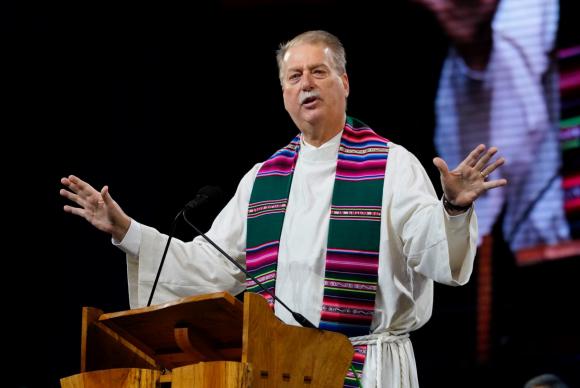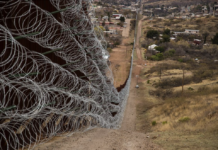
Elisa White
The United Methodist Church (UMC) decided to uphold a ban on same-sex marriage and LGBTQ clergy in a Tuesday vote.
Delegates gathered from Feb. 23-26 for a Session of General Conference to make this decision. The conference was held St. Louis, Missouri at the America’s Center Convention Complex. In total, there were 864 delegates from five Jurisdictional Conferences (within the United States) and seven Central Conferences (located around the world) who voted on the church’s decision.
For the last few months, church leaders and members have worried over the future of the church following this conference. There was also hope.
“Leading up to the General Conference, my prayer has always been that our church would choose to exhibit grace, mercy, and love in pursuit of Christ,” Florida Southern’s Assistant Chaplain Bryant Manning said. “Our church may not remain united, as our name states, but my hope is that God would be glorified in its decision, our Wesleyan heritage would not be left behind, and that more people could come to know Jesus as Lord and Savior.”
The UMC has debated whether or not to change their Book of Discipline (the governing document of the UMC) regarding human sexuality since 2016. At the 2016 General Conference, the Council of Bishops decided to call last week’s special session to specifically focus on settling this issue. The debate has largely been over whether or not to ordain LGBTQ clergy and whether or not to allow clergy to marry same-sex couples.
Before the General Conference last week, the Book of Discipline prevented both. Regarding ordination it said, “The practice of homosexuality is incompatible with Christian teaching. Therefore self-avowed practicing homosexuals are not to be certified as candidates, ordained as ministers, or appointed to serve in The United Methodist Church.” Regarding same-sex marriage, it said, “Ceremonies that celebrate homosexual unions shall not be conducted by our ministers and shall not be conducted in our churches.”
While several plans were presented to the delegates, only two of them gained real traction. The One Church Plan called for keeping the church united and allowing for pastors to decide for themselves whether or not to marry same-sex couples. The One Church Plan would also allow for bishops to decide whether or not to ordain LGBTQ clergy. The Traditional Plan called for keeping the Book of Discipline language regarding sexuality as is and providing a gracious exit plan for churches that want to leave.
The One Church Plan was defeated in a 449 to 374 vote Tuesday afternoon. At this point, supporters of this plan began protesting, hoping to keep proposing amendments to the Traditional Plan until the clock ran out to vote on it. Eventually, the tactics failed when Rev. Tim McClendon of South Carolina called for a vote on the Traditional Plan. On Tuesday evening it passed, receiving 438 votes in support and 384 in opposition.
of the church, who believe that the Bible condemns the practice of homosexuality.
Many expressed frustration at the outcome as a protest chant erupted across the conference floor when the vote was announced.
Julianna Coughlin is a lifelong Methodist and senior religion major.
“Personally, this decision really stings,” Coughlin said. “This decision reflects a new United Methodist Church that is far different than the one I grew up and have worked in. I can’t faithfully support a church that stands for this… I really thought those involved in General Conference would prioritize the worth and care for our brothers and sisters in Christ regardless of sexual orientation.”
As FSC is a Methodist-affiliated school, it is unclear what this decision will mean for the college. It is also unclear what impact this will have on scholarship money given to students who are United Methodist themselves or the children of United Methodist clergy.
Furthermore, students in the religion and youth ministry departments have speculated that their opportunities to get jobs in ministry after college could slim up following the decision by the UMC.







